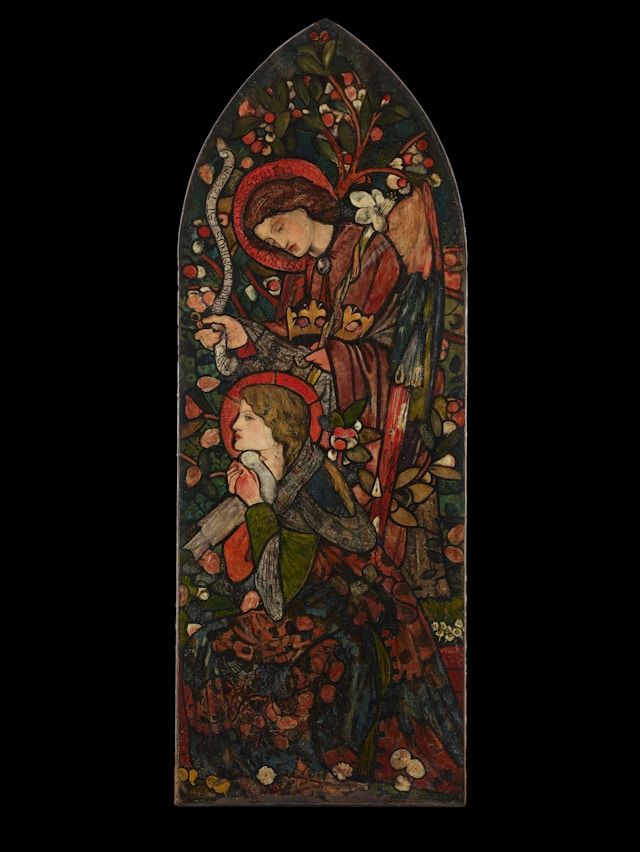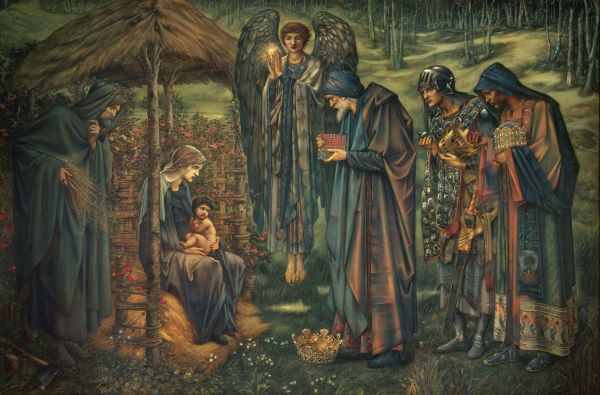Lucy Nanson
The problem is the way the Gospel writers have constructed their birth stories. Increasingly over the years I have found their accounts causing a deep-seated moral dilemma for me as a 21st century woman.
While visiting a far flung Cathedral in Australia displaying icons of various saints, I decided to light a votive candle below what was a particularly beautiful icon of Mary holding the infant Jesus. At the same time I was questioning myself as to why I had chosen this particular icon since I was aware of being both attracted and repelled by its iconography! This reaction puzzled me for some months to come. It was only during the season of Advent the reasons for my contrasting reactions began to surface.

Whether one reads the birth stories of Jesus as mythological or literal accounts is not the problem. Rather it is in the way the Gospel writers have constructed their birth stories. Increasingly over the years I have found their accounts causing a deep-seated moral dilemma for me as a 21st century woman.
From giving birth to four children [in what I thought was a loving relationship at the time] I can no longer fathom the God-of-Love I know needing to violate the sanctity of an engaged and loving Jewish couple by using the virginity of a young Jewish woman to ensure the purity and holy-birth for the Son of God. Even if I was to read these stories as Midrash renditions which are culturally and historically bound, they still become difficult for me to accept the form of violation they engender in me.
The sanctity of my inner being as a woman feels violated when trying to imagine the God-of-love I know wanting to use any woman in this way, and more so, if she was engaged to be married! For this reason this aspect of the Christmas story has become deeply disturbing for me and for a number of other Christian women over the years.
It would appear the male Gospel writers creating these birth stories have naively messed around with the physical and emotional sanctity of a woman’s body in order to create what they considered to be important as a Holy-birth for the Son of God.
Maybe you have to lose what you thought you would have in loving conception of children with your husband in order to understand what I am trying to convey here. For God to take this cherished reality away from Mary with those patronizing words “You have found favour with God” surely can only spring from men’s imagination when writing what they considered a woman would be honoured to hear. Then maybe in a male dominated Jewish culture of the day, a Jewish woman would not have dared be less than honoured by God using her obedience in this way. I suspect writers of the birth stories today would need to portray a very different kind of woman, and a very different kind of God who is not looking to rent-a-womb for the birth of Jesus.

How much easier it would be to go back to the innocence of being a child enjoying a traditional Nativity! But I can’t! Not without believing Joseph was to become the biological father of Jesus. This would still allow for the mystery of the Holy Spirit overshadowing them both during conception. Also this would allow me to celebrate Christmas without feeling violated as a 21st century woman by the kind of God who is portrayed through the traditional Gospel birth narratives.
Lucy Nanson [New Zealand Anchorite]
Background to this article
After visiting St George’s Anglican Cathedral in Perth Australia in 2011 I wrote an article with the idea of having it published at some stage by the Anglican Taonga.
The Moral Dilemma of a Virgin Birth – A Woman’s Perspective
In 2014, I found the courage to share it with a number of New Zealand and Australian Bishops, with varied responses. One Bishop’s response I still consider relevant and well worth pondering today:
“Many thanks for sending me a copy of your paper with its challenging thoughts about Mary’s role as the mother of Jesus. At the time I thought it was going to be about the symbolic nature of the virgin birth narrative rather than a literal one, but of course there is nothing new about that distinction.
Your paper went much further, suggesting that symbolic or literal, any concept that required imposing upon the virginity of a young woman is unacceptable in terms of respect for women, or indeed the personal freedom of anyone. And even if Mary said yes, nonetheless could there be [in modern day parlance] such a power of imbalance between God and human that personal compliance can never be free.
I like your last paragraph in particular as a new way of conceiving this story. I have no difficulty at all with Joseph being the biological father of Jesus, and that the Holy Spirit could still overshadow this conception and birth
Thank you for your enlightening thoughts, Lucy, and every blessing”
During the years which followed I read: A Virgin Conceived: Mary and Classical Representations of Virginity written by Mary Foskett, Assistant Professor of Religion at Wake Forest University. I found her book both illuminating and encouraging of what I had written in my short article.
In the meantime: The Moral Dilemma of a Virgin Birth – A Woman’s Perspective has gathered dust on my shelf among other brief writings of mine – hopefully until now.
Biblical Reference
Luke 1:26-38
Mathew 1:18-25
Further Reading
A Virgin Conceived: Mary and Classical Representations of Virginity
Author: Mary F Foskett
Published: Indiana University Press: 2002
Lucy Nanson
[Anglican Anchorite]
2024


